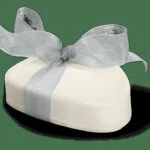What aromatherapy scents are bad for cats? While aromatherapy can be beneficial for humans, it can pose serious risks to our feline friends. Understanding the potential dangers of certain scents is crucial for responsible pet ownership.
Aromatherapy involves the use of essential oils to promote physical and psychological well-being. These potent oils are derived from various plant sources and have been used for centuries for their therapeutic properties. However, when it comes to cats, their sensitive sense of smell and unique physiology can make exposure to certain essential oils harmful.
Cats lack a liver enzyme called glucuronyl transferase, which is necessary to metabolize certain compounds found in essential oils. As a result, they are more susceptible to the toxic effects of certain scents. It’s important for cat owners to be aware of which essential oils can be dangerous for their pets and take necessary precautions to ensure their well-being.
The Sense of Smell in Cats
Cats’ Sensitivity to Aromatherapy Scents
Cats have a highly developed sense of smell, which is an essential part of their survival instincts. While humans may enjoy the calming scents of essential oils used in aromatherapy, these same scents can be overwhelming and even toxic to our feline friends. Cats have more sensitive noses compared to humans, with a larger number of scent receptors that make them more susceptible to the effects of strong odors.
Impact of Aromatherapy on Cats’ Health
Certain essential oils used in aromatherapy can have adverse effects on cats when they are exposed to them. Cats lack certain enzymes that help break down and metabolize compounds found in essential oils, leading to a buildup of toxins in their bodies. This can result in symptoms ranging from mild irritation to serious health issues, depending on the type and amount of oil ingested or inhaled by the cat.
Understanding the Risks
It is crucial for cat owners to be aware of the potential dangers that various aromatherapy scents pose to their furry companions. Some common essential oils like tea tree oil, peppermint oil, and citrus oils are known to be particularly harmful to cats. Even diffusing these oils in the air can lead to respiratory issues or other symptoms in cats, making it important for pet owners to exercise caution and avoid using such scents around their feline friends.
By being mindful of which aromatherapy scents are safe and which ones should be avoided, cat owners can ensure that their pets remain healthy and happy without being exposed to harmful substances. Prioritizing your cat’s well-being over trendy aromatherapy practices is key to maintaining a safe environment for your beloved furry friend.
Essential Oils to Avoid When Using Aromatherapy Around Cats
Aromatherapy has become a popular practice among many individuals seeking relaxation and stress relief. However, when it comes to using essential oils around cats, pet owners must be cautious as certain scents can be harmful to their feline friends.
Cats have a much stronger sense of smell compared to humans, making them more sensitive to the potent aromas emitted by essential oils. It is crucial to be aware of which essential oils are safe to use around cats and which ones should be avoided at all costs.
To ensure the well-being of your cat, here is a list of essential oils that should be avoided when using aromatherapy in your home:
- Tea Tree Oil
- Citrus Oils (Lemon, Orange, Lime)
- Pine Oil
- Peppermint Oil
- Eucalyptus Oil
These essential oils contain compounds that can be toxic or irritating to cats when inhaled or ingested. It’s important to carefully read labels and ingredient lists on any aromatherapy products you use in your home to make sure they are safe for your furry friend. While these scents may offer benefits for humans, they can have adverse effects on cats and should be kept out of reach from them at all times.
In case of accidental exposure or ingestion of these harmful essential oils by your cat, prompt action is necessary. Contact your veterinarian immediately if you suspect your cat has been exposed to any toxic aromatherapy scents. By being mindful of the potential dangers associated with certain essential oils, you can create a safe environment for both yourself and your beloved feline companion. Remember, the health and well-being of your cat should always take precedence over any trends in aromatherapy.
Most Common Aromatherapy Scents That Are Toxic to Cats
Aromatherapy, often used for its therapeutic benefits in humans, can pose serious risks to our feline companions. Cats are unique in their sensitivity to certain scents and essential oils, making it crucial for pet owners to be aware of what aromatherapy scents are toxic to cats. Certain essential oils contain compounds that are harmful or even toxic to cats when inhaled or ingested, causing a range of health issues from mild discomfort to severe poisoning.
To keep your cat safe from potentially dangerous aromatherapy scents, it is important to know which essential oils to avoid using around them. Here is a list of some of the most common aromatherapy scents that are toxic to cats:
- Peppermint
- Tea Tree
- Lavender
- Citrus (including lemon, orange, and grapefruit)
- Pine
These essential oils contain compounds that can cause adverse reactions in cats when inhaled or absorbed through their skin. It is crucial for cat owners to steer clear of these harmful scents and opt for safe alternatives when seeking aromatherapy benefits at home.
In addition to the essential oils listed above, other common aromatherapy scents such as eucalyptus, clove, and wintergreen should also be avoided when using aromatherapy around cats. While these scents may offer benefits for humans, they can be harmful and potentially fatal for our feline friends. Prioritizing your cat’s safety by being mindful of the substances you expose them to is essential in maintaining their well-being and health.
Symptoms of Aromatherapy Poisoning in Cats
Cats have an exceptional sense of smell, which makes them sensitive to certain aromatherapy scents that humans may find pleasant. When it comes to using essential oils around cats, it is crucial to be aware of what aromatherapy scents are bad for cats to prevent any potential harm or toxicity. Some essential oils contain compounds that can be harmful to cats when inhaled or ingested, leading to symptoms of poisoning.
One common essential oil that is toxic to cats is tea tree oil. This oil contains compounds called terpenes, which can be harmful and even fatal to felines. Symptoms of tea tree oil poisoning in cats include drooling, vomiting, difficulty walking, tremors, and even liver damage. Another essential oil to avoid around cats is citrus oils like lemon and orange, as they can cause sensitivity and skin irritation in contact with a cat’s fur.
Additionally, oils such as peppermint and eucalyptus should also be avoided when using aromatherapy around cats. These oils contain menthol and cineole, respectively, which can cause respiratory issues and gastrointestinal upset in felines. It is always best to consult with a veterinarian before using any essential oils in the presence of your cat to ensure their safety and well-being.
| Toxic Aromatherapy Scents for Cats | Symptoms in Cats |
|---|---|
| Tea Tree Oil | Drooling, vomiting, difficulty walking |
| Citrus Oils (lemon & orange) | Skin irritation and sensitivity |
| Peppermint & Eucalyptus Oil | Respiratory issues and gastrointestinal upset |
Safe Alternatives to Aromatherapy for Cat Owners
Cats are known for their sensitive sense of smell, which is significantly more acute compared to humans. While aromatherapy has gained popularity for its various benefits for humans, it is essential to be cautious when using aromatic oils around cats.
Some scents that are enjoyable and beneficial for humans can be harmful, or even toxic, to our feline friends. It is crucial for cat owners to be aware of what aromatherapy scents are bad for cats in order to ensure the well-being of their beloved pets.
One of the main reasons why certain aromatherapy scents can be harmful to cats is due to their unique physiology. Cats lack certain enzymes in their liver that help metabolize certain compounds found in essential oils, making them more susceptible to toxicity.
In addition, some aromatic compounds can cause respiratory issues or skin irritation in felines when inhaled or absorbed through their skin. Cat owners must exercise caution and do thorough research before introducing any new scents or oils into their living spaces.
Essential oils such as tea tree oil, citrus oils (like lemon and orange), peppermint oil, and eucalyptus oil are among the top scents that are known to be toxic to cats. These oils contain chemical compounds that can cause adverse reactions ranging from mild symptoms like drooling and vomiting to more severe effects such as difficulty breathing or liver damage.
It is advisable for cat owners to avoid using these essential oils in diffusers, topical applications, or any form of direct contact with their pets. The safety of our feline companions should always take precedence over following aromatherapy trends without proper knowledge.
| Common Aromatherapy Scents Toxic to Cats | Effects on Cats |
|---|---|
| Tea Tree Oil | Skin irritation, tremors |
| Citrus Oils (lemon, orange) | Vomiting, diarrhea |
| Peppermint Oil | Respiratory distress |
| Eucalyptus Oil | Liver damage |
How to Keep Your Cat Safe From Harmful Aromatherapy Scents
Aromatherapy can be a wonderful way to relax and unwind for humans, but it’s important to remember that not all scents are safe for our furry friends. Cats have a much more sensitive sense of smell compared to humans, making them more susceptible to the adverse effects of certain essential oils and fragrances. As pet owners, it is crucial to understand what aromatherapy scents are bad for cats in order to keep them safe and healthy.
Identifying Harmful Aromatherapy Scents
When using aromatherapy products in your home, it’s essential to be mindful of the ingredients and scents you are exposing your cat to. Some common essential oils that are toxic to cats include tea tree oil, citrus oils (such as lemon or orange), peppermint, eucalyptus, and pine. These oils contain compounds that can be harmful or even deadly to cats if ingested or inhaled in large quantities.
Alternatives for Aromatherapy Enthusiasts With Pets
If you are an avid fan of aromatherapy but also a responsible pet owner, there are safe alternatives that you can use around your home. Opt for pet-friendly essential oils such as lavender or chamomile, which have calming properties and are generally considered safe for use around cats.
It’s always best to consult with your veterinarian before introducing any new scents into your home to ensure they won’t harm your furry friend. Remember, your cat’s well-being should always come first when incorporating aromatherapy into your living space.
Conclusion
In conclusion, it is important for cat owners to prioritize their feline companions’ well-being over following aromatherapy trends. While aromatherapy can offer various benefits for humans, the sense of smell in cats is much more sensitive and certain scents can be harmful or even toxic to them. It is crucial to be aware of what aromatherapy scents are bad for cats in order to prevent any potential harm.
Some essential oils that should be avoided when using aromatherapy around cats include tea tree oil, citrus oils, cinnamon, peppermint, and pine. These oils can cause a range of symptoms including drooling, vomiting, difficulty breathing, and even liver damage in severe cases. Cat owners must carefully read labels and research which essential oils may be harmful to their pets before using them in their homes.
For those looking for safe alternatives to aromatherapy for their cats, consider using pet-safe candles or diffusers specifically designed for use around animals. Additionally, creating a calming environment with gentle music or creating a cozy spot with their favorite toys can help promote relaxation without the use of potentially harmful scents. Ultimately, ensuring that your beloved feline friend is safe and healthy should always take precedence over any fleeting trend in the world of aromatherapy.
Frequently Asked Questions
What Essential Oil Scents Are Toxic to Cats?
Some essential oil scents that are toxic to cats include tea tree oil, citrus oils, pennyroyal oil, pine oil, and wintergreen oil. These oils can cause adverse reactions in cats when ingested or even just being exposed to them in the environment.
Is It OK to Diffuse Essential Oils Around Cats?
It is not recommended to diffuse essential oils around cats without taking precautions and ensuring the oils are safe for feline friends. Cats have a more sensitive sense of smell than humans, so diffusing oils can overwhelm them. Always consult with a veterinarian before using essential oils around cats.
What Calming Scents Are Safe for Cats?
Calming scents that are safe for cats include lavender, chamomile, and valerian root. These scents can help reduce stress and anxiety in cats when used in moderation. It’s important to properly dilute these essential oils and introduce them gradually to see how your cat reacts.

Are you looking for a natural way to improve your health and wellbeing?
If so, aromatherapy may be the answer for you.





